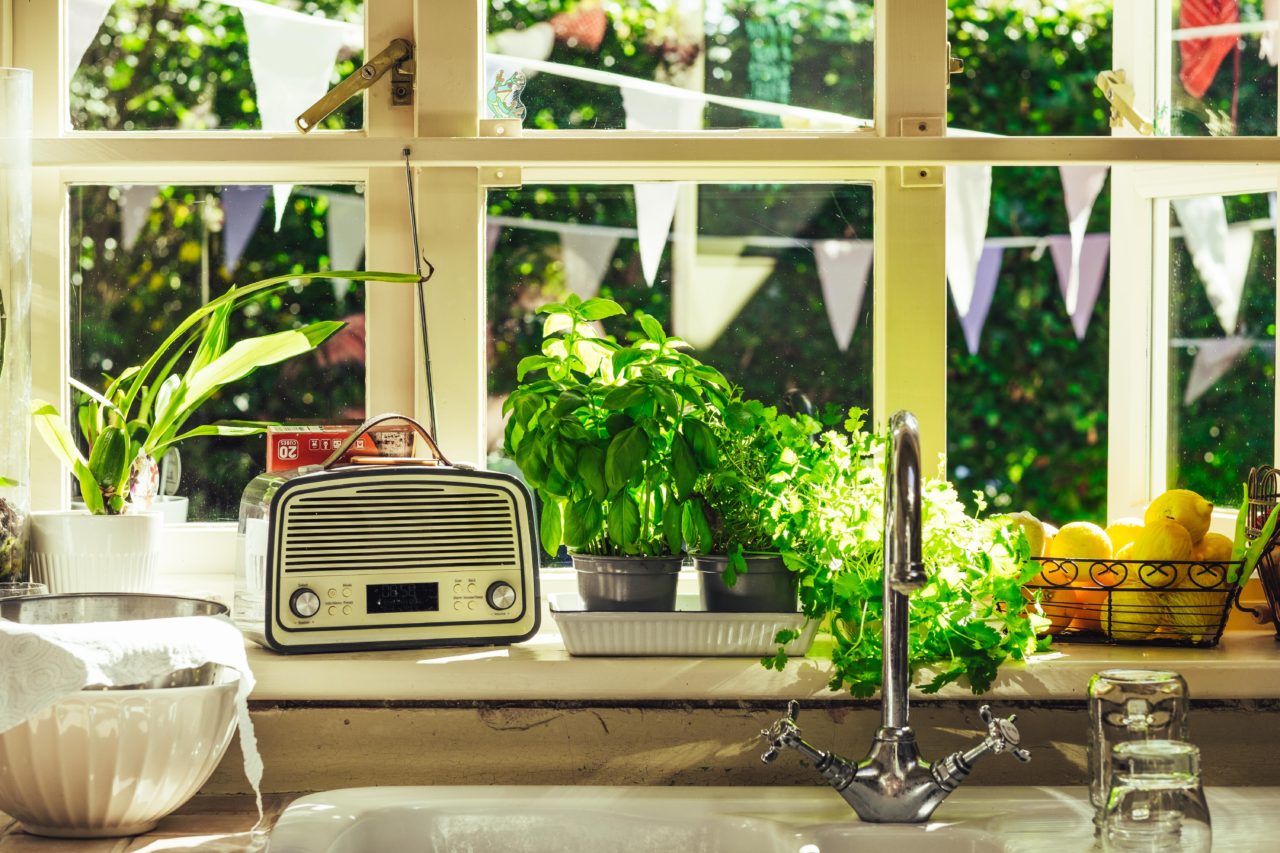Short days, cozy nights & the constant threat of snow: Winter Solstice approaches! In the holiday season, we are reminded to draw our friends and families close. The impulse to express our affection with gifts is strong, but many of us don’t want more “things.” Some of us want to counteract consumer culture. Others simply want to avoid overfilling already-crammed shelves. Whatever the reason, this nature-inspired gift will show that you care, without adding clutter to your loved-ones’ lives. The bonus? You probably have most of the materials on-hand so you can have a thoughtful gift ready right away!
Kitchen Herb Garden
Give them a taste of nature at their fingertips, year-round! Up-cycled materials, plus a little bit of love, will transform your extra herbs into little Gardens of Eatin’. Your friends and family will go wild for this thoughtful alternative to store-bought & soon-forgotten stuff!
What you’ll need at minimum:
- jars or cans
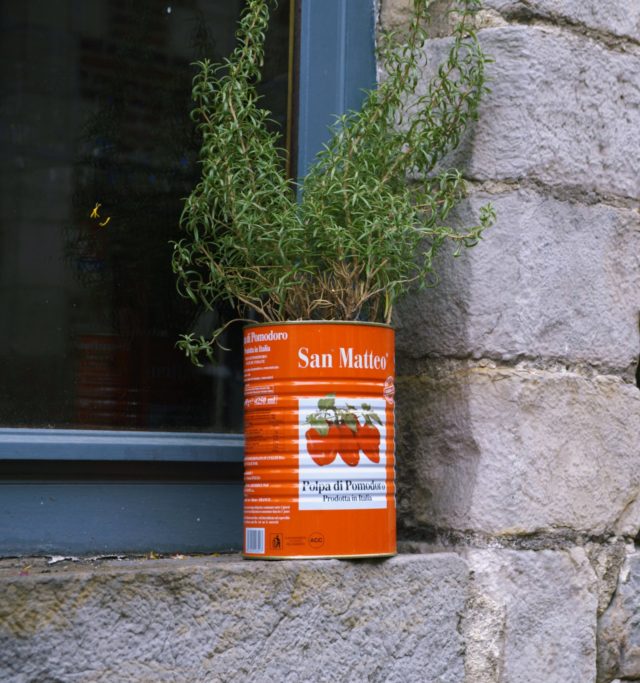
- potting soil
- small rocks or large pebbles
- herb plants
Bonus:
- craft materials for decoration & labeling
- trays or saucers
- a wine cork or two
- tools to safely puncture tin
Select containers big enough to allow a few layers of rocks and large pebbles at the bottom. (This ensures that water drains and the plants don’t drown)
If you use tin cans, make sure they are free of sharp edges. Some can openers don’t leave pointy bits, which is ideal. (We think it’s worth the investment).
After ensuring the can is safe, carefully make several coin-sized punctures on the bottom to allow drainage.
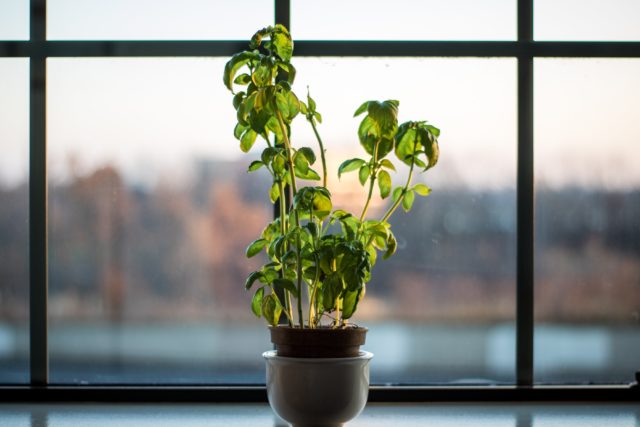
What about the soil?
We recommend finding organic potting soil at your local nursery, or taking
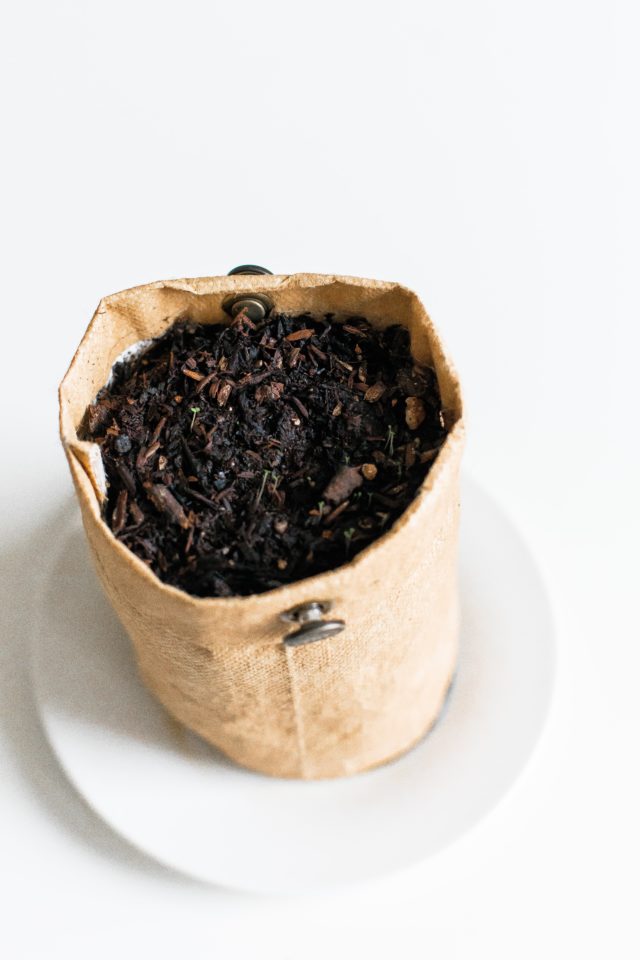 advantage of the compost so many of us started in 2020; by now, it should be ready to mix with dirt for a nutrient-rich home-made alternative!
advantage of the compost so many of us started in 2020; by now, it should be ready to mix with dirt for a nutrient-rich home-made alternative!
If you use your own compost, make sure it has broken down properly first—don’t just throw in yesterday’s banana peel!
Don't go too heavy: 4 parts soil to 1 part compost is a good guideline.
What kind of herbs should I use?
In keeping with the spirit of nature’s abundance, we recommend transplanting whichever herbs you have in your garden (or in pots) that are thriving and have extra growth! If you’ve never done it before, check out this article on how to transplant herbs. Basil, mint, rosemary, dill, thyme, and chives are all good choices.
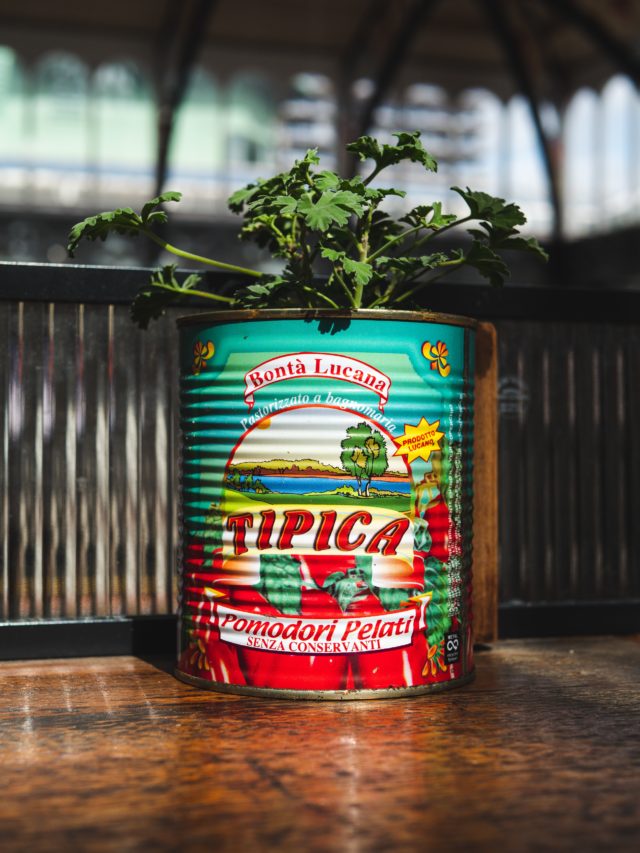
If you don’t have any good options at home, ask your neighbors if they have any herbs they are looking to thin. Be sure to offer something in return, like a baked good, shoveled walkway or evening of pet-sitting. (BONUS: this is a great way to start, or continue, a super-local friendship!).
Try your local nursery.
Don’t cram lots of plants into a small space. Remember, they will keep growing with time, so give them space to expand.
Labeling & Decoration
Keep it simple, or let your inner artist get funky giving plant labels a personal flair. This is where personal style (and knowledge of your gift-ee) goes a long way. The sky’s the limit!
If you’re gifting the plants to a first-time gardener, including a hand-written note with care instructions is invaluable.
Include a saucer or tray of some kind as part of the kitchen garden. It not only looks cute and pulls the garden together, but it catches water to draining below the cans.
Use slices of wine corks to slightly elevate the cans away from the tray for even better drainage!
Decorating with rust-proof paint ensures durability and vibrance for years to come!

Another eco-conscious gift idea? The gift of Nature Works Land Care!
Contact us to make arrangements.


